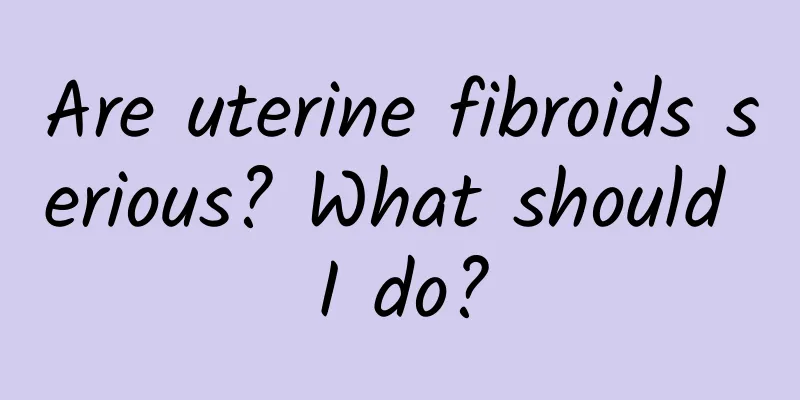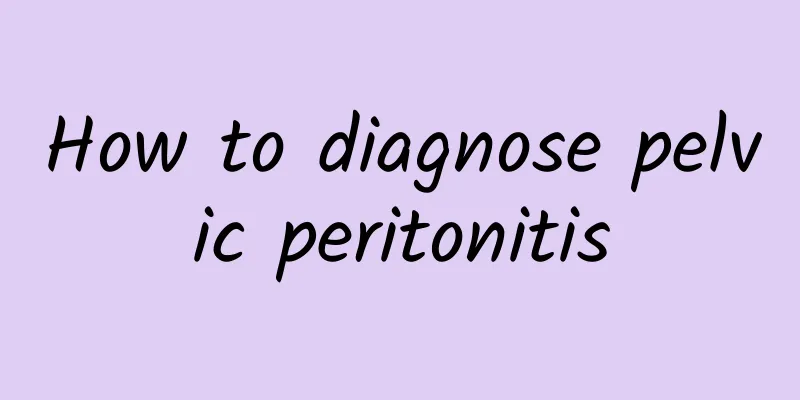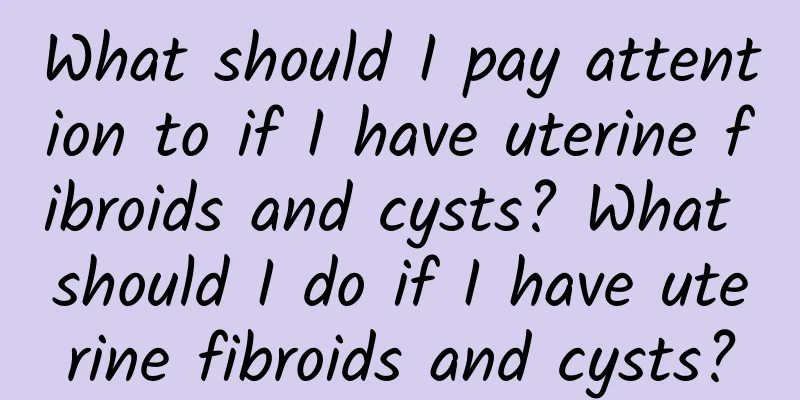Are uterine fibroids serious? What should I do?

|
Whether uterine fibroids are serious depends on the specific situation. If there are no symptoms, you can observe them temporarily; if there are obvious symptoms, surgical treatment may be required. 1. Understand the prevalence of uterine fibroids: Uterine fibroids are common benign tumors in women. About half of women will develop uterine fibroids at some stage in their lives. Although it sounds common, it does not mean that every uterine fibroid is dangerous. Most women may not even know that they have uterine fibroids because they usually do not cause obvious symptoms. 2. Asymptomatic treatment: If you are diagnosed with uterine fibroids but do not have any symptoms, then surgery is usually not needed immediately. Your doctor will recommend regular monitoring, generally every six months, to ensure that the fibroids are not growing or causing other problems. This observational management approach can avoid unnecessary surgery and related risks. 3. Treatment of symptomatic uterine fibroids: When uterine fibroids cause obvious symptoms, such as anemia, menorrhagia, frequent urination, or constipation, further treatment should be considered. Especially when fibroids compress the bladder or rectum, resulting in a decrease in quality of life, surgery may be a necessary option. If uterine fibroids are identified as one of the causes of infertility, surgical treatment may also be the key to solving the problem. 4. Surgical treatment options: For patients with uterine fibroids who need surgery, there are several different surgical options available. Traditional open laparotomy is an option, but in recent years, minimally invasive surgeries such as laparoscopy and robot-assisted surgery have become more common, with less trauma and faster recovery. The specific surgical method to choose needs to be determined based on the size and location of the fibroids and the specific situation of the patient. 5. Postoperative care and follow-up: Postoperative care is equally important. Follow the doctor's advice and have follow-up on time to ensure that the fibroids do not recur or have other complications. During the postoperative recovery period, proper rest, avoid heavy physical labor, and maintain good living habits will help restore health. 6. Lifestyle adjustments: In addition to surgery and observation, maintaining a healthy lifestyle can also help manage uterine fibroids. A balanced diet, moderate exercise, and avoiding excessive stress all contribute to maintaining overall health and may help prevent and relieve the symptoms of uterine fibroids. 7. Pay attention to mental health: The diagnosis and treatment of uterine fibroids may bring certain psychological pressure to women. Sharing with family and friends, seeking psychological support, or consulting professional psychology are all good ways to cope with it. Maintaining a positive attitude will help to better face and deal with the disease. Whether uterine fibroids are serious depends mainly on whether they cause obvious symptoms and affect the quality of life. Asymptomatic fibroids can be observed and reviewed regularly; symptomatic fibroids require active treatment, including surgery and postoperative care. Maintaining a healthy lifestyle and a good mental state also play an important role in the management and prevention of uterine fibroids. |
<<: What causes chronic cervicitis?
>>: What are the consequences of not removing a large uterine fibroid?
Recommend
A brief discussion on the three main methods of treating ectopic pregnancy
In real life, ectopic pregnancy is not a rare gyn...
How long after abortion can you get pregnant again
It is usually recommended to wait at least 6 mont...
What are the three major factors that cause ovarian cysts?
What are the three major factors that cause ovari...
What symptoms indicate that I may have an ovarian cyst?
Women's health should be paid special attenti...
Is it normal for menstruation to come two days early every month?
Many women have their menstruation advanced or de...
How to take care of pelvic effusion after surgery
If medication or physical therapy is ineffective ...
Why is premenstrual leucorrhea abnormal?
Abnormal premenstrual leucorrhea may be related t...
Multiple diagnostic methods for hyperprolactinemia
If hyperprolactinemia occurs in life, it will bri...
A girl with a thick waist and a small belly may suffer from gastrointestinal crisis caused by three highs
Are you the spokesperson for "thick-waisted ...
What to do if bleeding occurs after cervical erosion surgery? Take medication
Generally speaking, patients with cervical erosio...
If I find uterine fibroids while preparing for pregnancy, do I need surgery?
If you are not considering pregnancy and having a...
What you need to know before you start weight training! Beginners should start by learning BIG3
The most important exercises for weight training ...
What are the symptoms of ovarian cysts and how are they different from teratomas?
We can help diagnose the symptoms of gynecologica...
Attention should be paid to daily care of patients after abortion
After abortion, the patient is weak and has low r...
How to take care of ectopic pregnancy in daily life
I believe everyone has heard of the disease of ec...









